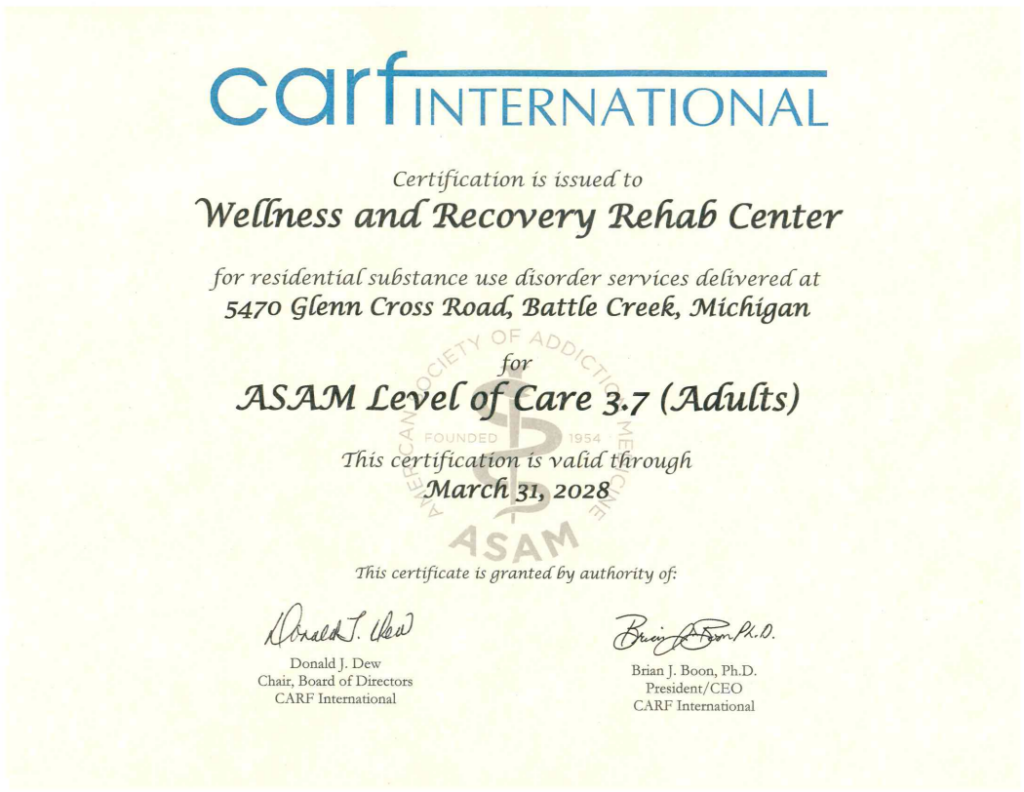
For those struggling with substance use disorder (SUD) or co-occurring mental health symptoms, an inpatient drug rehab center offers a safe place designed to help with healing and address all aspects of addiction.
At Wellness and Recovery —we’re here to help. We offer a full continuum of care, from inpatient to outpatient treatment, and we’ll walk alongside you on your unique path to healing.

"Inpatient SUD treatment offers a highly immersive and structured environment, which is crucial for individuals in the early stages of recovery. At Wellness and Recovery, our inpatient program provides 24/7 medical supervision and support, ensuring that patients are safe and cared for as they navigate withdrawal and early recovery. Unlike outpatient treatment, inpatient rehab removes patients from potentially triggering environments, allowing them to focus entirely on their healing. We also offer a wide range of therapies, including individual counseling, group therapy, and holistic treatments like yoga and art therapy, all within a supportive community setting. This comprehensive approach helps build a strong foundation for long-term sobriety."
Most rehab centers like drug rehabs Riverside, California follow a structured daily schedule that helps restore healthy patterns that may have been lost during active addiction. Regular meal times, therapy sessions, recreational activities, and sleep schedules contribute to physical and mental healing.
Our stable, supportive setting at Wellness and Recovery’s inpatient drug rehab center is here to help you during this time of intense change by ensuring you focus on what’s most important—your recovery.
"At Wellness and Recovery, we prioritize creating a structured yet compassionate environment for our inpatient clients. Each day is carefully planned with a balance of therapy sessions, educational workshops, and recreational activities to promote physical, emotional, and mental well-being. Our team of experienced healthcare professionals, including certified therapists and medical staff, are available around the clock to provide guidance and support. We also foster a sense of community through group therapy and peer support, helping patients feel connected and understood. This structured approach ensures that patients have the tools and support they need to focus on their recovery without distractions."
Inpatient rehab isn’t just about getting sober now; it’s about staying sober for life. Our programs help develop coping skills, identify triggers, create relapse prevention plans, and build healthy habits that support long-term sobriety.
CBT helps identify and change negative thought patterns that lead to substance use. For example, an individual might learn to recognize when stress at work leads to thoughts about drinking, and then use new coping strategies instead.
DBT helps individuals learn vital skills for staying sober and working through intense emotions.
DBT teaches specific skills in four main areas:
MI resolves ambivalence about change by exploring an individual’s motivations for recovery. This approach acknowledges and works with, rather than against, the mixed feelings inherent in changing substance use habits.
Art therapy allows people to express feelings that might be hard to express verbally. Through drawing, painting, sculpting, or other creative activities, people can process trauma, grief, and other emotions tied to addiction. No artistic skill is needed – the process, not the product, matters most.
Working with horses provides unique therapeutic benefits. Horses respond honestly to human emotions, offering immediate feedback about a person’s emotional state. This interaction helps build self-awareness, confidence, communication skills, and healthy relationship patterns.
The detox experience varies depending on the substance used, how long it was used, the amounts used, and individual health factors. Having medical professionals manage this process removes much of the suffering and risk people fear.
This step-down approach from our inpatient drug rehab center provides the right level of support as people gradually return to independent living.
"Transitioning from inpatient rehab to aftercare is a critical phase in the recovery journey, and at Wellness and Recovery, we take a proactive approach to ensure a smooth transition. Before discharge, our team works closely with each patient to develop a personalized aftercare plan that may include outpatient therapy, support groups, and ongoing medication management if needed. We also provide vocational training and educational support to help patients reintegrate into their daily lives with confidence. Additionally, we offer regular follow-up sessions and alumni programs to maintain a connection with our patients, providing ongoing support and accountability as they navigate life after rehab."
If you or someone you love is struggling with addiction, contact Wellness and Recovery today to learn more about our inpatient drug rehab center and take the first step toward a healthier, more fulfilling life.
